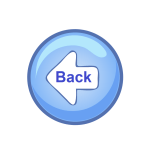Waste Training

What is Waste?
General Waste
The most common waste stream is General Waste. Most businesses will have General Waste, and will need a way of disposing of this. We can assist the business to make sure they have the correct procedure in place to best manage their waste disposal and keep them compliant. Here are the things that a business can and cannot dispose of through their General Waste -

Mixed Recycling
Another common waste stream is Mixed Recycling. Most businesses will benefit from having Mixed recycling within their waste management program as it can save the business money and assist them to become more environmentally friendly. The items that you can and cannot put into Mixed Recycling are listed below.

Other Waste streams include -
Wee Waste

WEE waste is the name given to electronic waste. WEE waste can be anything from a mobile phone to Tv's, computers, laptops, keyboards, tablets, printers, stereos and fridges. The definition of WEE waste is electronic products nearing the end of their "useful life."
Food

Having a Food Waste bin can help a business reduce their cost of waste disposal. A lot of businesses putting food waste into a general waste bin may experience overweight charges, as food waste can weigh more than general waste.
Cardboard

Lots of businesses need to dispose of cardboard. Businesses that need to dispose of cardboard may benefit from a compactor fitted on site to assist to reduce costs further.
Confidential
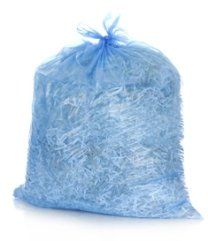
Businesses that handle client details and may need to dispose of sensitive paperwork, we can assist businesses to dispose of Confidential waste.
Green Waste

Green waste can consist of the following things - grass cuttings, hedge and plant clippings, leaves, small branches, twigs, weeds and chipped bark. Some businesses with large amounts of Green Waste such as golf courses may benefit from implementing an onsite compost / natural biodegrading bin.
Glass Waste

Glass waste is common in the hospitality industry such as pubs, clubs and restaurants. Having a glass bin can seriously reduce a businesses spend on waste due to its weight and size. The cost of recycling glass can be a lot cheaper in comparison to a general waste collection.
Hazardous

Hazardous waste is waste that poses substantial or potential threats to public health or the environment. Hazardous waste can be expensive to dispose of. Things such as paint, oil filters, inks and resins, batteries and chemicals fall into hazardous waste.
Sharps

Any business disposing of sharps such as needles and scalpels must have a sharps bin. It is a legal requirement for businesses to have a sharps bin. As Sharps bins are considered dangerous waste they are usually disposed of by incineration
Skips
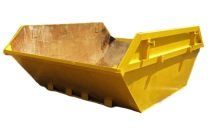
Skips come in all different shapes and sizes and are good for businesses that need to dispose of a lot of material that they would not need to dispose of in the general running of the business. We can assist businesses that need a one off skip or need to use a skip for a period of time.
Site Waste
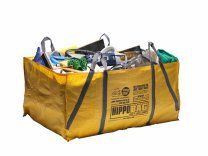
Building Sites, festivals, show and businesses having a refit or update could all have site waste. We can make sure that they are compliant in their waste disposal and assist them to find the most cost effective way to manage their waste disposal.
Sanitary Bin
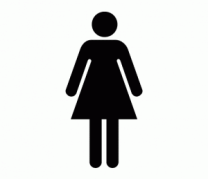
Any business that has female employees and/or has a female onsite toilet has a duty of care and should have a sanitary bin that is accessible in the female washroom. We can assist businesses to be compliant and source a sanitary bin.
Scrap Metal
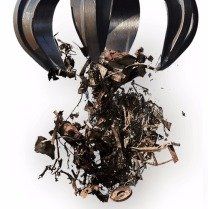
A lot of manufacturing companies may need to dispose of scrap metal. Scrap metal, although it is a waste product tends to hold a high value and businesses should look to sell this waste as it can be recycled.
